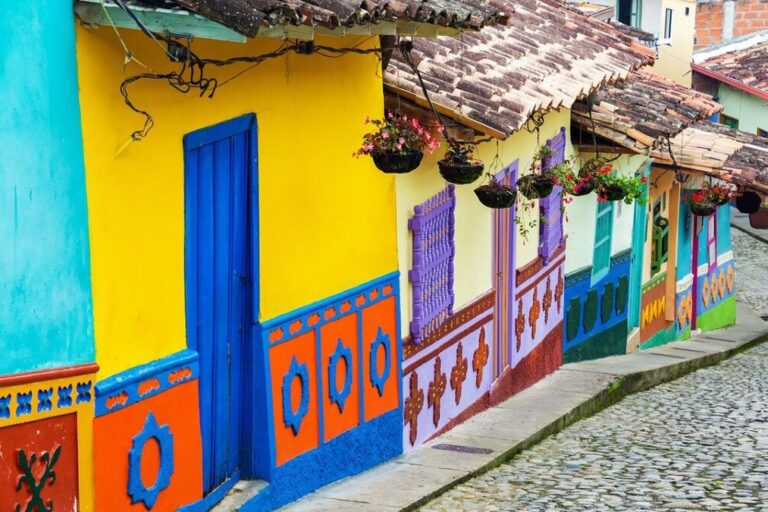Colombia has emerged as a prime destination for property buyers in recent years, thanks to its vibrant culture, breathtaking landscapes, and dynamic real estate market. Whether you’re eyeing an investment property in bustling Bogotá or a vacation home along the Caribbean coast, Colombia offers opportunities for every type of buyer.
This guide aims to walk you through the ins and outs of buying property in Colombia, demystifying the process and helping you make informed decisions.
Why Buy Property in Colombia?
Colombia might not have been on your radar a decade ago, but today it’s a hotspot for real estate investment. Here’s why:
- Affordable Real Estate: Compared to North America and Europe, property prices in Colombia are significantly lower. You can enjoy high-quality construction and prime locations at a fraction of the cost.
- Strong Rental Market: With a growing economy and increasing tourism, rental properties in cities like Medellín and Cartagena yield impressive returns.
- Lifestyle: Whether you’re drawn to the temperate climate of the Andes or the laid-back vibe of coastal towns, Colombia offers diverse living experiences to suit any preference.
- Emerging Economy: Colombia’s economic growth and political stability have created lasting interest from international buyers and investors.
Steps to Purchasing Property in Colombia
1. Understand Local Real Estate Laws
Unlike some countries, Colombia permits foreigners to purchase property without requiring local residency. However, it’s essential to be aware of certain legal nuances:
- No Residency Needed: Foreign nationals can buy property as easily as locals.
- Property Rights: Always verify the property’s legal standing to ensure there are no ownership disputes or unpaid taxes.
- Taxes: Buyers are subject to a property tax, determined by the property’s assessed value, as well as notary and registration fees.
2. Select the Right Location
Choosing the right location is key to maximizing the value of your investment. Here are some popular regions to consider:
- Bogotá: Colombia’s capital offers urban living with excellent employment opportunities and cultural activities. It’s ideal for professionals and investors targeting long-term rentals.
- Medellín: Known as the “City of Eternal Spring” for its temperate climate, Medellín has become a hub for expats and digital nomads.
- Cartagena: Perfect for those looking for vacation rentals, Cartagena provides colonial charm along with Caribbean shores.
- Coffee Region (Eje Cafetero): If you’re searching for tranquility, this area offers breathtaking mountain views and is a favorite among nature lovers.
3. Work with Reputable Professionals
Navigating a foreign real estate market can be tricky, but the right support can simplify the process. Ensure you work with:
- Licensed Real Estate Agents: Agents familiar with Colombian real estate laws can provide invaluable guidance while helping you negotiate the best deals.
- Attorney: A lawyer experienced in property transactions can confirm there are no legal encumbrances tied to a property.
- Trusted Currency Services: When sending funds internationally for your purchase, consider reputable services for safe and cost-effective wire transfers.
4. Secure Your Financing Options
One important thing to note is that mortgages for non-residents can be difficult to obtain. Many foreign buyers opt to purchase properties in cash, using savings or remittance transfers. If financing is necessary, you may need to explore private lenders or partnerships.
Here’s a step-by-step of what to expect:
- Make an Offer: Once you find the right property, submit an offer to the seller.
- Sign a Promise to Buy/Sell (Promesa de Compraventa): This legally binds the buyer and seller to the transaction and details penalties for backing out.
- Deposit Funds in Escrow: It’s common to place earnest money in escrow to secure the property during due diligence.
- Complete Due Diligence: Ensure there are no unpaid utilities, back taxes, or legal conflicts tied to the property.
- Register the Title: After paying the balance, register the property title in your name at the local notary office.
6. Keep Your Documents Organized
Throughout the process, you’ll need to present key documents such as:
- A copy of your passport
- The notarized purchase agreement
- Proof of residency status, if applicable
- Confirmation of tax payments (seller’s responsibility)
Costs to Consider When Buying Property in Colombia
When budgeting, factor in the following additional costs:
- Property Tax: Generally 1% of the property’s assessed value annually.
- Notary Fees: Approximately 3% of the property price.
- Real Estate Commission: Typically paid by the seller but it’s good to confirm this upfront.
- Legal Fees: Your attorney may charge approximately 1–2% of the purchase price.
Practical Tips for Foreign Buyers
- Currency Exchange: Colombia’s local currency is the Colombian Peso. Familiarize yourself with current Colombian Peso exchange rates to send money at the best value.
- Hire a Translator: While many professionals in Colombia may speak English, having a translator ensures accuracy during negotiations or while reviewing contracts.
- Visit Before Buying: If possible, spend time in your desired location to understand the culture, amenities, and neighborhood vibe.
Why Now is a Great Time to Invest in Colombia
Investing in Colombian real estate allows you to diversify your portfolio while taking advantage of the country’s relatively low costs. With a robust rental market, tourist-attracting cities, and its welcoming policies toward foreign investment, Colombia is firmly positioned as a real estate gem in Latin America.
Resources for purchasing property in Colombia
- U.S. State Department travel information for Colombia
- U.S. Internal Revenue Service
- Official immigration website for Colombia
- Colombian Tax and Customs National Authority (DIAN)
- Century 21 Colombia
- RE/MAX Colombia
Frequently Asked Questions (FAQ)
Is property ownership in Colombia open to foreigners?
Yes, Colombia allows foreigners to own property without residency or citizenship requirements.
What taxes should I be aware of when buying property?
Buyers typically pay property transfer tax (around 1%) and notary fees (approximately 3%).
How do I send funds to Colombia for a property purchase?
You can use secure platforms like Remitly for international transfers to minimize fees and secure competitive exchange rates. Learn more about how to send money safely to Colombia.
Start Your Property Buying Journey
Buying a property in Colombia can be both exciting and rewarding when you come prepared. By understanding the process and leveraging professionals, you can make confident decisions that align with your goals. Interested in taking the next step? Explore our additional resources on Colombian real estate or learn how to renew your Colombian passport in the U.S..

